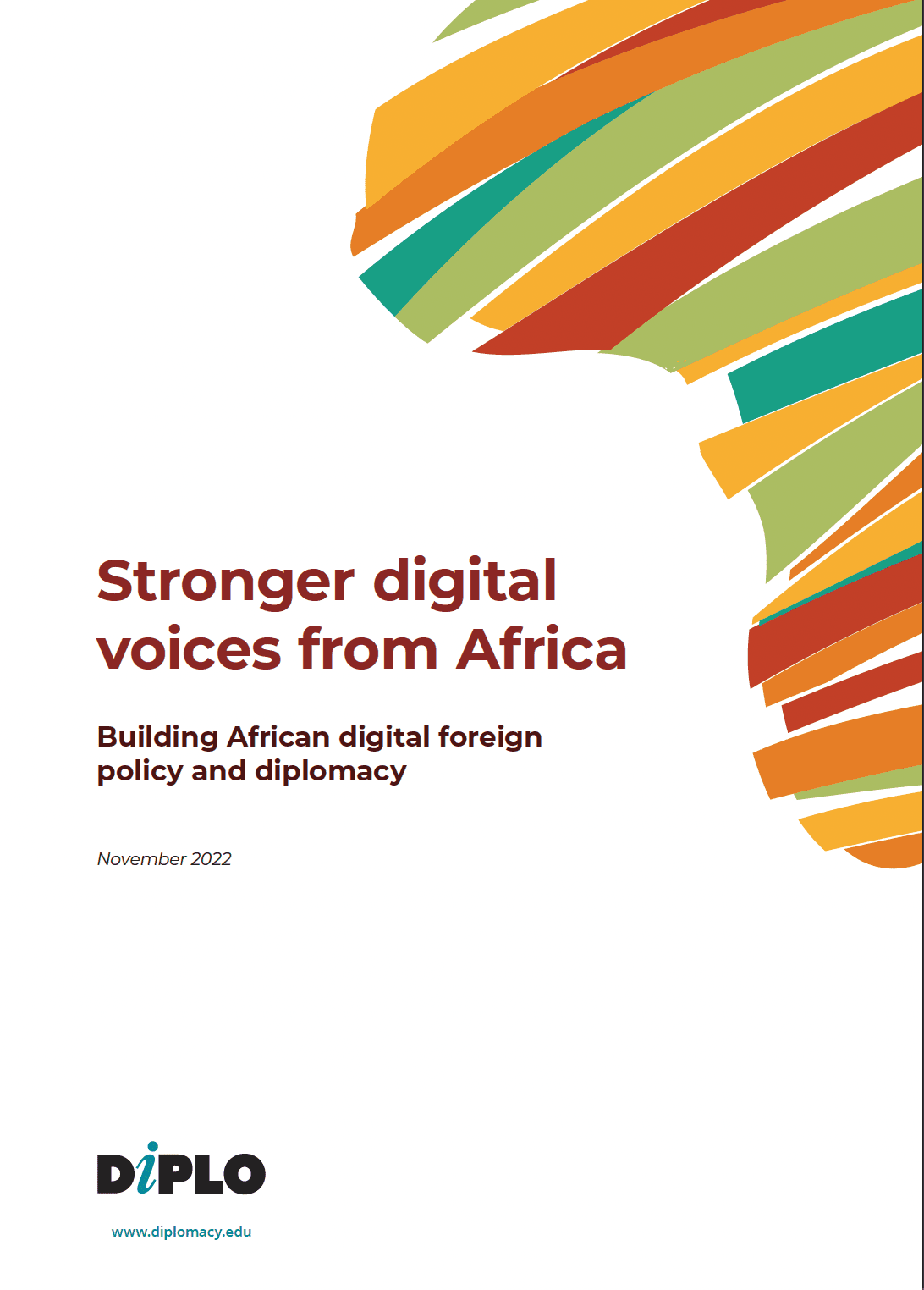Artificial intelligence in Africa: Continental policies and initiatives
Read full report Stronger digital voices from Africa: Building African digital foreign policy and diplomacy.
Artificial intelligence (AI) is making it on the agenda of regional processes across the African continent. In 2019, African Union (AU) country ministers in charge of ICT called for the establishment of a working group tasked with developing a common African stance on AI, developing a capacity building framework, and establishing an AI think tank.1African Union [AU]. (2019). African Digital Transformation Strategy and African Union Communication and Advocacy Strategy among Major AU Initiatives in Final Declaration of STCCICT3. The group, chaired by Egypt, held its first meeting in February 2021.2Ministry of Communications and Information Technology, Egypt. (2021, February 25). Egypt chairs AU Working Group on AI. Meanwhile, the AU Executive Council – at its February 2022 meeting – requested the AU Commission to pursue the development of a continental AI strategy.3African Union Executive Council. (2022). Decision 1144 (XL) on the reports of the specialized technical committees (STCs) and other ministerial meetings. And in May 2022, the AU High-Level Panel on Emerging Technologies4The AU High-Level Panel on Emerging Technologies is a multistakeholder group tasked with advising the AU and its member states on how to harness innovation and emerging technologies for socio-economic development. reiterated the need for a continental AI strategy that ‘would enable African countries to enhance policymaking and implementation and improve stakeholder engagement on AI-related challenges and opportunities’.5AUDA-NEPAD. (2022, May 30). The African Union Artificial Intelligence Continental Strategy for Africa.
Within Smart Africa, an AI initiative spearheaded by South Africa in collaboration with the German Agency for International Cooperation (GIZ) and the Smart Africa Secretariat aims to work on strengthening technical know-how on AI, removing entry barriers to AI, and developing policy frameworks for AI.6Smart Africa. (n.d.). Artificial intelligence.
In 2021, a blueprint was published in the framework of this initiative which outlines recommendations for the development of AI strategies and legal frameworks in Africa. One recommendation is for national AI guidelines and regulations to be based on international best practices. The blueprint also highlights the importance of ensuring that Africa is part of global processes where AI-related governance and regulatory challenges are being discussed. But, more importantly, the document notes that Africa needs a smart strategy to allow it to ‘find a profitable niche in the global environment of fierce [AI] competition. A focus on intra-African, home-grown AI development is a promising way forward. Local AI avoids dependencies from international platform monopolies in the field of data provision, data processing and AI solutions’.7Smart Africa. (2021). Blueprint: Artificial Intelligence for Africa.
The African Commission on Human and Peoples’ Rights (ACHPR) has been paying attention to issues at the intersection between AI and human rights. In its 2019 Declaration of Principles on Freedom of Expression and Access to Information in Africa, the Commission calls on states to ensure that the ‘development, use and application of AI, algorithms and other similar technologies by internet intermediaries are compatible with international human rights law and standards, and do not infringe on the rights to freedom of expression, access to information and other human rights’.8African Commission on Human and Peoples’ Rights [ACHPR]. (2019). Declaration of Principles on Freedom of Expression and Access to Information in Africa.
In 2021, the Commission adopted a resolution specifically on AI and human rights, urging governments to ‘work towards a comprehensive legal and ethical governance framework for AI technologies, robotics and other new and emerging technologies’, and stressing the need for the AU and regional bodies to ‘develop a regional regulatory framework that ensured that these technologies respond to the needs of the people of the continent’. Furthermore, the Commission committed to ‘undertake a study in order to further develop guidelines and norms that address issues relating to AI technologies, robotics and other new and emerging technologies and their impact on human rights in Africa working together with an African Group of Experts on AI and new technologies’.9African Commission on Human and Peoples’ Rights [ACHPR]. (2021). ACHPR/Res.473 (EXT.OS/XXXI) 2021 – Resolution on the Need to Undertake a Study on Human and Peoples’ Rights and Artificial Intelligence, Robotics and other New and Emerging Technologies in Africa.


